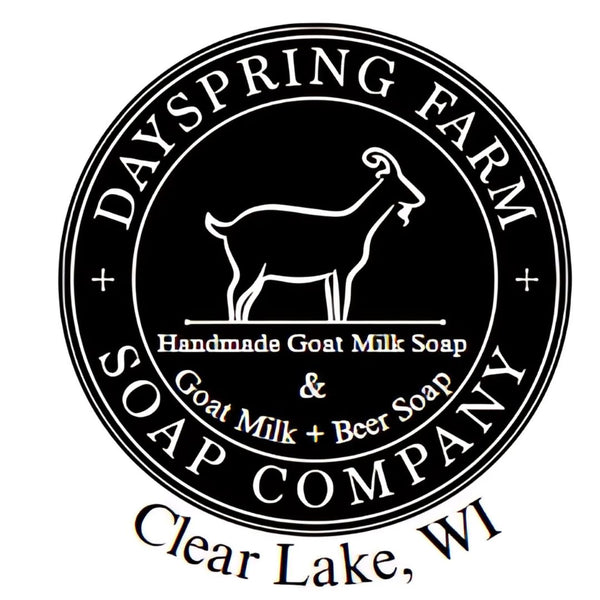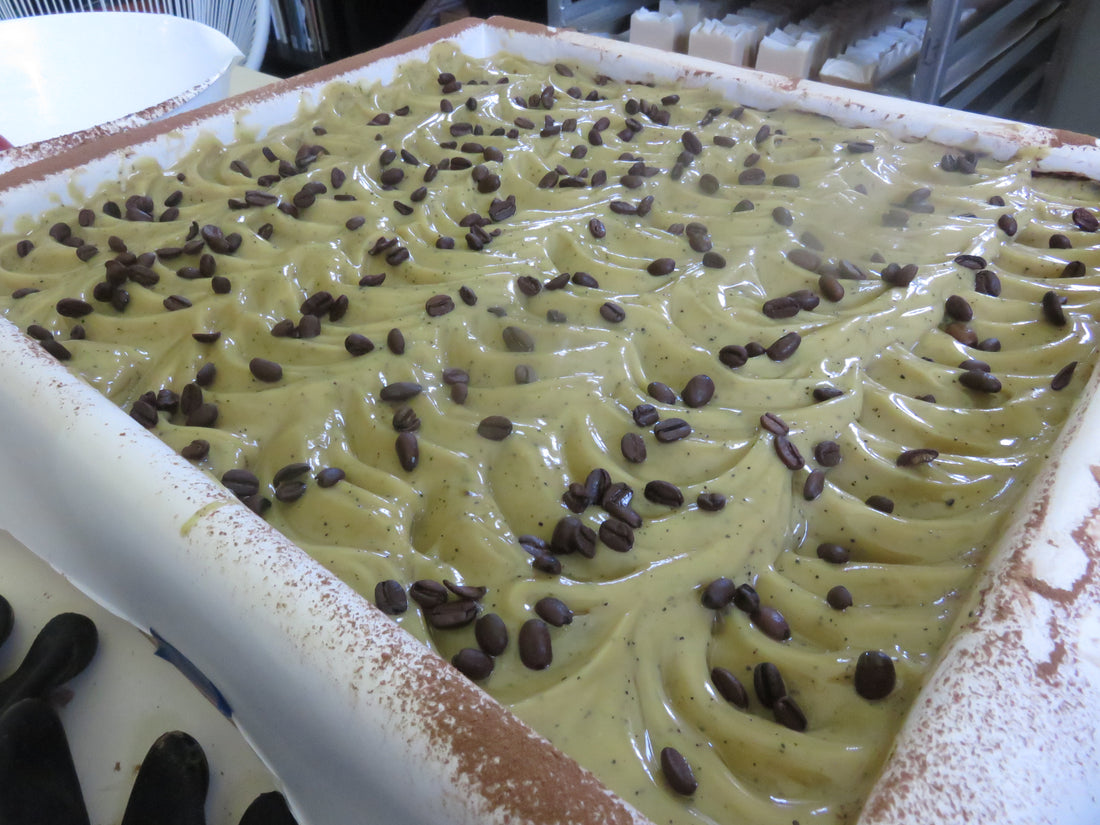When we started making soap, we followed recipes and we knew if we did or didn't like how the bar turned out. It took some time, however, to discover what ingredients produced certain effects. We learned all about fatty acid profiles and which oils made things creamy, moisturizing, cleansing, or produced the kind of lather we love. We learned all about how fragrances behave in soaps, and the powers of essential oils. We learned just what it is about goat milk that has made it a favorite soap ingredient for thousands of years. We learned why people used to (well, some still do...) bathe in beer and honey! We experimented a whole lot, and our experiments yielded these very special ingredients that star in some of our Dayspring Farm Soap Company soaps. While we can't claim these will cure your ills, here are our notes on why your skin will love our soap ingredients.
Tallow
Ok, for some folk animal fats like tallow carry a certain "ick" factor. But hear me out. Tallow is a sustainably sourced ingredient, continually produced as a byproduct of beef processing (unlike palm oil, which is often used in soaps as a replacement for animal fats - see here). Tallow is highly moisturizing, and contains palmitic acid, which helps strengthen skin's protective function (palmitoleic acid is one of skin's basic building blocks). It also contains an enormous arsenal of skin-beneficial nutrients: vitamins A, D, K, E and B12, conjugated linoleic acid (an ant-inflammatory), and stearic acid, which aids in skin repair. Not too bad for an ingredient that animal processors often just throw out.
Lard
Again, some people really dislike the idea of putting animal fats on their skin, but there are qualities you simply can't find elsewhere. Tallow and lard both have qualities highly compatible with human skin structure, which makes it easy for our skin to absorb their moisturizing benefits. Lard is a very mild cleanser and contains vitamins A, D, E, and omega 3 fatty acids. Like tallow, lard is sustainably sourced as a byproduct of pork processing. Many people with skin sensitivities find they can tolerate lard-based soaps better than any other kind.
Olive Oil
Olive oil is a highly moisturizing cleanser and full of antioxidants.
Coconut Oil
Coconut oil is hydrating, moisturizing, and anti-inflammatory. It has antibacterial, antifungal and antiviral properties, and interestingly, has been shown to promote wound healing. It improves skin barrier function and may reduce rashes and skin sensitivities.
Castor Oil
Castor oil is antimicrobial, helps hold moisture in the skin, and is skin-smoothing. It also promotes superior lather in soap, which means it helps soap do a better job of cleaning.
Goat Milk
For thousands of years goat milk has been known for its gentle, nourishing effect on your skin. It cleans gently, minimally disturbing the skin's protective barrier. Caprylic acid is a naturally occurring triglyceride in goat's milk, and has been shown to be naturally antiviral, antifungal, antibacterial and anti-inflammatory. Goat milk is rich in fatty acids and cholesterol, which are critical components of your skin membrane. It also is rich in nutrients like vitamin A (thought to be anti-aging) and selenium, which has been shown to support healthy skin.
Honey
Honey is antimicrobial, moisturizing, and improves soap lather, which increases soap's cleaning power. It's also a skin soother and contains more valuable antioxidants.
Oatmeal
Oatmeal contains antioxidants and anti-inflammatory properties. Starches and beta-glucan in oatmeal help the skin retain moisture, and other compounds in oatmeal reduce itching in dry and irritated skin, which is why it's a popular treatment for summertime rashes, burns and stings.
Lavender Essential Oil
Lavender would be valuable for its relaxing scent alone, but it's also known for soothing the skin, reducing itching and irritation, and relieving pain and irritation. It's also antimicrobial, which makes it great for treating acne.
Tea Tree Essential Oil
Like lavender, tea tree essential oil soothes skin, relieves pain and itching, and is antimicrobial. It can also reduce skin sensitivity to irritants. Great for rashes and insect bites.
Beer
Some people are surprised to hear of using beer in soap, but beer has probably been used in skin care since it was invented. Beer is high in skin-softening amino acids and beneficial vitamins, and the sugar in beer improves soap lather quality.
Coffee
While coffee may give you jitters in your cup, on your skin it has the opposite effect. It has been shown to be soothing and mood-lifting. Antioxidants in coffee aid in skin repair and may reduce fine lines. Coffee improves skin circulation (giving you a rosy glow) and in hand soap - like our Mocha Valencia Chef's Soap - it's deodorizing, neutralizing garlic, fish and other food odors.
Turmeric
Curcumin, the active compound in turmeric, has been show to be antimicrobial, anti-inflammatory and antioxidant. It can calm angry skin, reduce unevenness in skin tone, lighten dark spots on skin, reduce the appearance of scars and brighten skin.


2 comments
Hi Julie!
We use a combination of essential oils and man-made fragrances. Some essential oils are not safe to use on skin or are not safe under certain conditions (for instance, we do not use Frankincense essential oil to scent our products because it’s unsafe in pregnancy – for this we use a man-made fragrance oil that incorporates a safe amount of Frankincense essential oil to produce the scent).
Our colors are all produced using botanicals – madder root, alkanet root, indigo, turmeric, cocoa powder. Thanks for your question!
What products do use for fragrance?
Natural or synthetic? What do you use for the color in your soaps. Thank you.